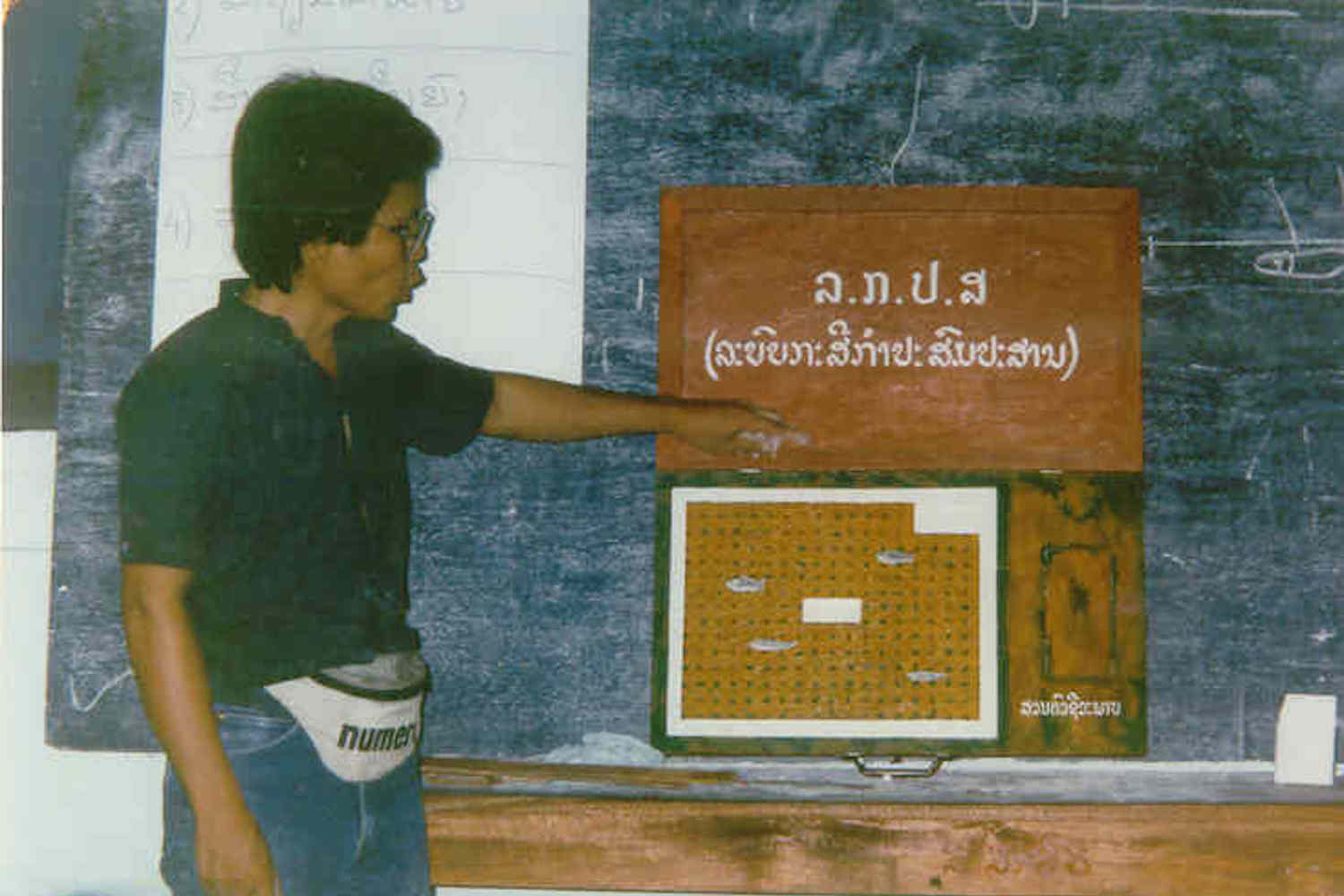Radio Free Asia: 15 December 2013

U.S. Secretary of State John Kerry warned Laos Sunday that the unresolved case of a missing local civil society leader could undermine the authoritarian state’s aspirations of becoming a responsible member of the international community.
Kerry, who is visiting Southeast Asia, said the United States “remains deeply concerned” over the fate of Sombath Somphone, one of the most respected civil society figures in Laos, on the one-year anniversary of his disappearance.
Sombath has been missing since Dec. 15, 2012, when he was stopped in his vehicle at a police checkpoint in the Lao capital Vientiane. He was then transferred into another vehicle, according to surveillance video. No one has seen him since.
Lao officials say they are investigating the case but have offered little information on Sombath’s whereabouts, prompting human rights groups to suspect that he may have been abducted by government-linked groups.
Six international rights groups said in a joint statement last week that Laos’s failure to conduct a “serious” investigation into the disappearance had “heightened concerns” about government involvement in the case.
Kerry said the international image of Laos could be dampened by Sombath’s case.
“Laos has taken steps in recent years to become a responsible partner in the community of nations. Sombath’s abduction threatens to undermine those efforts,” Kerry said in a statement as he visited Vietnam at the weekend on a trip aimed at shoring up ties with Southeast Asia.
“We call on the (Lao) government to take all actions possible to ensure his safe return to his family,” Kerry said.
“Our thoughts are with Sombath’s family, friends, and the countless others in the international community who have been inspired by Sombath’s exemplary leadership and devotion to his country.”
International requests rebuffed
Laos has turned down international requests to provide assistance in the investigations into Sombath’s disappearance, including a U.S. offer to provide technical help to enhance the quality of some blurry images of the video footage.
Kerry said Washington welcomed a recent statement by Lao President Choummaly Sayasone that the Lao government is very concerned about Sombath’s disappearance and would continue its investigation and take all measures necessary to resolve the case.
“We look forward to learning the results of a full, thorough, and transparent investigation,” Kerry said.
“The United States values its partnership with Laos on a wide range of issues – including unexploded ordnance removal, health, education, combating trafficking in persons, environment, justice reform, counternarcotics, trade, and the search for our missing in action – and we wish to work constructively with Laos to protect human rights and promote the rule of law.”
Sombath’s wife Ng Shui Meng said that her husband, winner of the 2005 Magsaysay Award, had never campaigned against the Lao government and only worked to help the people.
“I only hope that whoever has taken him will show compassion and let him come home,” she told RFA’s Lao Service. “If he has committed any crime, then charge him in court and allow him the right of due process according to law, and allow his family the right of visitation.”
Political, economic pressure
Sixty-two Asian non-governmental organizations in a joint statement called on the international community, particularly the United States, the European Union and the Association of Southeast Asian Nations (ASEAN), to raise Sombath’s case with the Lao government in all bilateral and multilateral fora.
They should “exert political and economic pressure on the Lao government to ensure the promotion of reforms that guarantee respect for fundamental human rights in accordance with its international obligations,” the groups said, adding that Sombath was a victim of “enforced disappearance.”
Enforced disappearance—the detention of persons by the state, usually the military or police, followed by a refusal to reveal their fate or whereabouts—is a major human rights concern in Asia.
The 62 groups, which included the ASEAN Parliamentarians for Human Rights (APHR) and Asian Forum for Human Rights and Development (FORUM-ASIA), said Sombath’s case was not an isolated incident.
They said that the whereabouts of nine people—two women, Kingkeo and Somchit, as well as seven men, Soubinh, Souane, Sinpasong, Khamsone, Nou, Somkhit, and Sourigna—arbitrarily detained by Lao security
forces in November 2009 in various locations across the country remain unknown.
“The nine had planned peaceful demonstrations calling for democracy and respect of human rights,” they said.
Also unknown are the whereabouts of Somphone Khantisouk, the owner of an ecotourism guesthouse and an outspoken critic of Chinese-sponsored agricultural projects that were damaging the environment in the northern province of Luang Namtha, the groups said.
He disappeared after uniformed men abducted him in January 2007, according to the statement.
